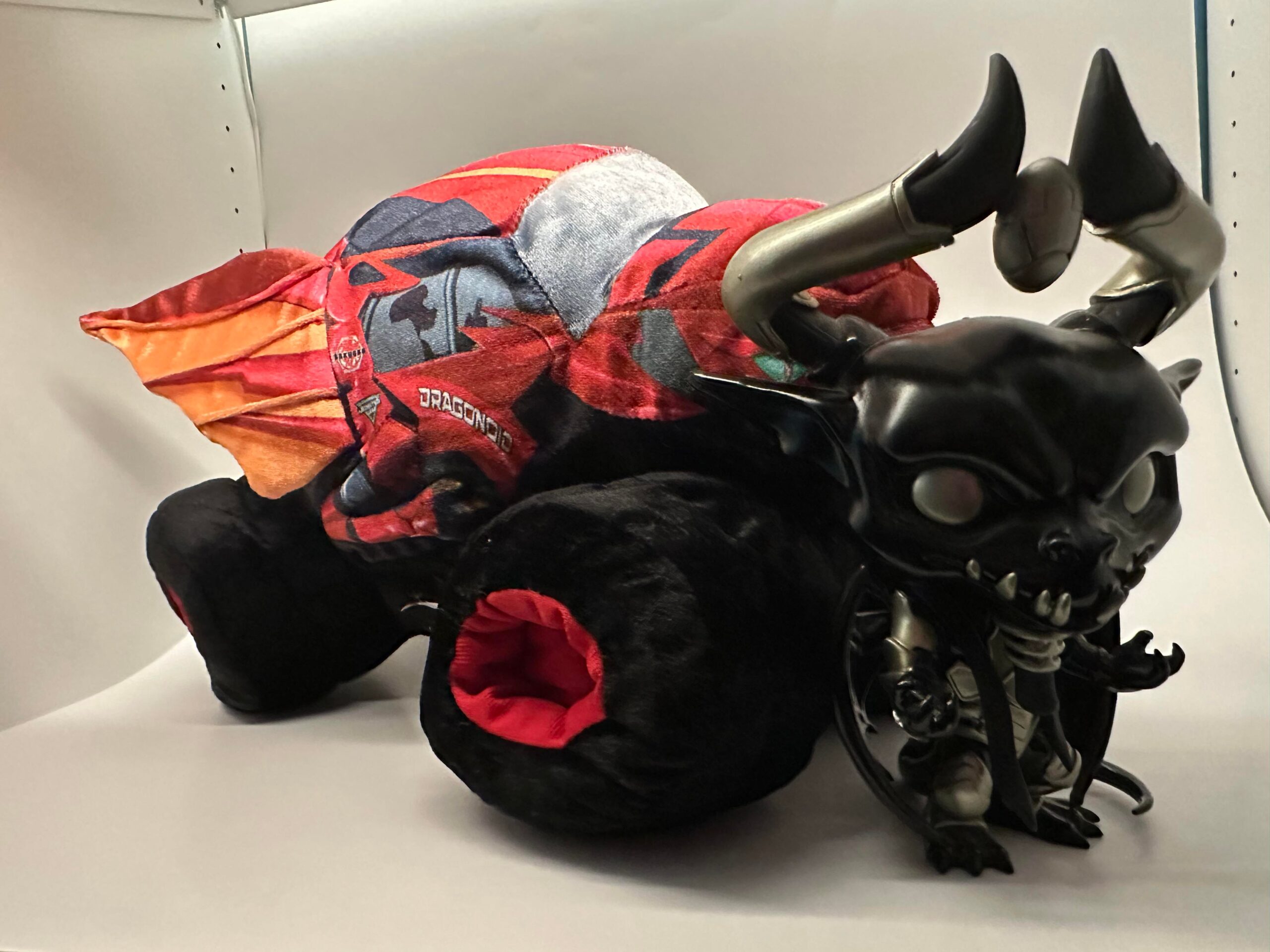It is Saturday night. You and your friends have taken your seats at your local stadium. The brisk winter wind chills your hands as they hold your comically large can of overpriced beer. You are surrounded by the smell of curly fries and methane. The air is filled with a cacophony of combustion engines and screaming 12-year olds. A light turns green, engines roar to life, every adult in the arena is now also a screaming 12-year old. A garish truck with impossibly large tires does a backflip, the crowd erupts. Welcome to Monster Jam.


Coming to a Masters set near you? (Probably not actually?)
You may be thinking to yourself, “I too like sick flips, but what does this triumph of modern automotive have to do with Magic: The Gathering?” The answer to that question is well, a lot, actually. Monster Jam, like many other large scale sports events, is a production that is very similar to the shows we put on at a MagicCon or CommandFest. The goals of a Magic tournament are very similar to that of a monster truck rally:
COMPETITION
At its core a Monster Jam event is a tournament, in their case a multi-format event with aggregated scores to determine a winner. That certainly sounds familiar.
ENTERTAINMENT
Be it through filming video content, attendees live on-site, or broadcasting on television or the internet, another goal of these events is to entertain.
INDUSTRY
Entertainment and competition both result in the support of the industry around it. In the case of Monster Jam that can mean anything from merch sales on site, ticket sales at the door, brand recognition for business partnerships, and ultimately customer acquisition and retention.
So what can be learned from these similarities? The competition itself has the most direct parallels to what we do as Magic judges. There is a tournament happening with a lot of underlying logistics. Something we noticed while in attendance was that we much preferred the racing at the start of the day compared to the second half of the competition which was more individual skills based and slower paced. More racing would have been phenomenal, but there is more going on behind the scenes, and most noticeably right in front of us: the course would need to be rebuilt to ensure a level, both figuratively and literally, playing field for the competitors. Think about it like setting up a draft, the work that goes into preparing the product for each pod and the seating for each player – while it can be done quickly, it requires a lot of work and coordination.
Attendees get to watch a narrative also built over the course of the show. The racing portion of Monster Jam was a set of heats (rounds) that ended in awarding each driver points according to their finish. Going into the second half of the show felt like switching from draft to constructed at a Pro Tour or starting Day Two of a multi-day event. The leaderboard is set and your features team can follow the stories of their leaders across the remainder of the event. That narrative is something that is massively important to the success of our Magic coverage. Magic is a dense game and can be a complicated watching experience, especially for folks newer to the game. Being able to follow particular competitors helps create a story to get invested in and decks to get excited about watching.

Unbothered. Moisturized. Happy. In their lane. Focused. Flourishing.
Even if our goals are entertainment and competition, the industries involved still make it all possible and benefit greatly from the event’s success. Watching Monster Jam felt like seeing something similar to the MPL or Pro Tour circuit play out in front of me – a small selection of competitors who compete on a traveling circuit that is put on display for an audience. While the publishers and brands are some of the biggest benefactors of a successful event, those relationships to us as attendees and officiants are symbiotic. A successfully run broadcast or show is an excellent way to introduce new people to the things that we do – be it monster trucks crushing cars or a Magic pro crushing cards. Those stories help pull new people into our events, and when those events are run well, our roles as ambassadors for the game and arbiters for competition, are integral to a great customer experience – and that experience will keep folks coming back!
My long-winded point here is that a Magic tournament is far more similar to a football game or NASCAR race than a lot of us realize. The takeaway there being that these events and other industries have a lot to teach us. There won’t always be perfect comparisons, but these events have officiants like ours, registration teams like we do, along with vendors, competitors, and fans. I’m not saying that you need to go to Monster Jam, although it kind of ruled, but I’m saying the next time you’re at a concert, or a baseball game, or even a theme parks – take a moment to stop and look around to see what they’re doing that looks familiar, what you can infer from their processes. It’s very possible to take home some perspectives that will help you further on down the line as you continue on your Magic judge journey.
If you’ve found any interesting parallels to Magic judging in other industries, let us know! Continue the discussion on the Judge Academy Discord.



